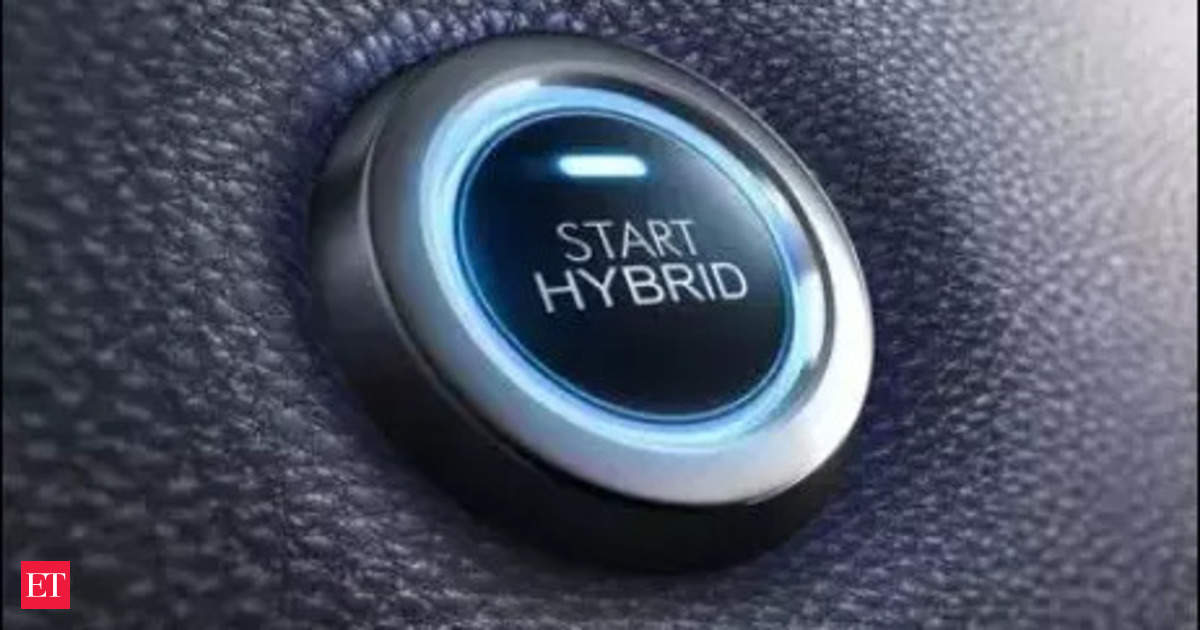To be sure, strong hybrid vehicle sales growth is on a small base, but the shift in market dynamics underscores the growth. consumer appetite for fuel efficient cars amid high fuel prices.
According to industry estimates, 23,394 hybrid vehicles were sold in the June quarter, up 62.5% from a year earlier. This compares with a modest 3% rise in total domestic passenger vehicle sales of 1.03 million units in the same period.
Electric vehicle Sales remained virtually flat at around 22,000 units in the first three months of FY25, reflecting consumer concerns about the driving range and resale value of these cars.
Incentives announced by the Uttar Pradesh The government’s support for strong hybrids, adding to its existing financial support for fully electric vehicles, are among the factors that are sparking interest in hybrids. The UP Industries Department announced on July 5 that it will waive registration charges for hybrid and plug-in hybrid vehicles from July 1, translating into benefits of ₹1.5-3 lakh per vehicle, depending on the model and variant. The incentive, which reduces the price gap between Hybrids and the corresponding gasoline models, will be valid until October 2025.
Hybrids have a 2% market share
“We have seen a significant increase in demand for hybrid cars in recent months. Sling Urban hybrids experienced a 35% growth in July 2024 compared to June 2024,” Honda Cars India Honda’s City hybrid model’s share in total City sales reached 13 per cent in April-July, up from 11 per cent in the same period last year, Kunal Behl, vice president of sales and marketing, told ET.Maruti Suzuki It gets a fifth of its sales from powerful hybrid versions of the Grand Vitara sport utility vehicle.
Partho Banerjee, executive director, marketing and sales, at India’s leading carmaker, said, “It is a new technology that we have introduced in the mainstream market in the country. We have been running a campaign and educating customers about its benefits. We are seeing a continuous improvement in demand as more and more customers are trying out these vehicles and discovering their value.”
Take for example Niharika Dev (not her real name), a communications professional working at NCR, who bought a powerful Toyota Hyryder hybrid SUV late last month. Dev had two questions when choosing a new vehicle: she needed an automatic car to make her daily commute to the office (19.5 km each way) in the heavy city traffic, and she needed a fuel bill that wouldn’t be excessive.
The Hyryder helped reduce its fuel costs by 30-40%, while incentives announced by the UP government reduced the initial acquisition cost by about Rs 1.5 lakh.
These and several other factors, ranging from concerns about the resale value of electric vehicles despite lower running costs to apprehensions about battery life and vehicle range, are causing some customers to embrace strong hybrid vehicles, industry experts said.
Currently, the share of electric vehicles in new car sales in India is almost on par with that of strong hybrids (around 2%), although there are comparatively fewer hybrid models on sale now.
The UP government recently decided to continue extending incentives to both fully electric and strong hybrid vehicles under the state’s electric vehicle policy, despite objections from some companies.
While electric vehicle manufacturers such as Tata Motors And while Mahindra & Mahindra say governments (Centre and states) should invest resources to transition to zero-emission vehicles like electric ones, hybrid manufacturers like Toyota, Maruti Suzuki and Honda argue that a multi-technology approach (including encouraging adoption of ethanol, flex-fuel, biogas, hybrid and battery-electric vehicles) is best suited to reduce emissions in a diverse country like India.
With several launches in the mass segment from companies such as Tata Motors, M&M, Citroen and MG Motor India, electric vehicle sales have been growing steadily over the past few years, albeit on a low base.
However, the segment’s initial momentum has begun to wane. Sales of electric cars fell 3% year-on-year, marking the third consecutive month of decline, raising fears that the Indian market may be reflecting a broader slowdown in global EV sales.
Poor charging infrastructure and higher prices for electric vehicles are deterring potential buyers, despite the higher running costs of petrol and diesel cars.
India has around 12,000 public charging stations, compared to 87,000 petrol stations supplying petrol and diesel. Range anxiety is prompting manufacturers such as Maruti Suzuki, Toyota and Honda to explore alternative technologies such as hybrids, CNG and flex-fuel to reduce emissions, while India is preparing an ecosystem for electric vehicles.
Rajeev Singh, partner and consumer industry leader at Deloitte Asia Pacific, attributes the slow adoption of electric vehicles to high acquisition costs and range anxiety among consumers. These vehicles are typically 1.35 to 1.7 times more expensive than corresponding gasoline-powered cars. “As battery prices come down, more models are launched and charging infrastructure improves, the adoption rate (of electric vehicles) will increase,” Singh said.
Disclaimer:
The information contained in this post is for general information purposes only. We make no representations or warranties of any kind, express or implied, about the completeness, accuracy, reliability, suitability or availability with respect to the website or the information, products, services, or related graphics contained on the post for any purpose.
We respect the intellectual property rights of content creators. If you are the owner of any material featured on our website and have concerns about its use, please contact us. We are committed to addressing any copyright issues promptly and will remove any material within 2 days of receiving a request from the rightful owner.

